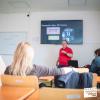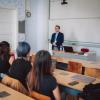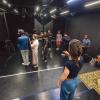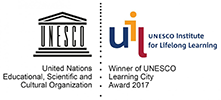Coronavirus – Snapshot
2020
Apr
24
There is a raging pandemic: at the beginning of the semester very few people could have predicted, how radically our lives will change from one moment to the next. Measures against COVID-19 have overridden all personal plans. The Prime Minister himself has announced the first confirmed COVID-19 patient in Hungary on 4 March, by 11 March the state of emergency has been introduced, and by 15 of March, the first coronavirus-related death has been announced.
At the University of Pécs an Operative Team has been created, with the aim to prepare for an increasing number of patients. (For further information on everything concerning the coronavirus and the university visit: https://pte.hu/en/covid/news). First, an educational break was declared, and then the spring break was held a week earlier. Meanwhile those colleagues and staff members for whom remote work was possible, started to work in home office. After the spring break, education resumed in the form of digital education.
The Clinical Centre established a designated Coronavirus Care Centre. The dormitories are empty, if the situation would require, they could be turned into quarantine facilities or in the worst-case scenario, they could be used as temporary hospital rooms. Meanwhile professor Ferenc Jakab (Faculty of Sciences, Szentágothai Research Centre, UP) has been elected as head of the national coronavirus research team. Most shops are closed, many multinational companies have stopped their factories – because of these, the government announced serious economic decisions on 18 March. Then a restricted curfew was introduced from 28 March until 11 April in order to flatten the curve of patient numbers and to save the healthcare system from an overload.
I spoke to rector Dr. Attila Miseta before a meeting of the Operative Team on 3 April. On that day, there have been 554 confirmed cases of coronavirus infection in Hungary.
What do you think, how are we doing in terms of preparation? Did the UP make the decisions in time?
Compared to other countries we did react rapidly and correctly. This has been relatively easier to do, given the international experience with other situations in the past, and of course, that the government realized the severity of the situation, was crucial. This was not the case everywhere though. According to Ministry of Human Capacities, the state secretary for health and the UP Operative Team, the response and preparedness of the UP is exemplary.
Did we really manage to flatten the curve of the number of infections in this region?
Thankfully, yes. How much we played a role in this however, is difficult to say, but this is a fact: the case numbers are low, so I cannot speak about a daily increase of case numbers in the last 10 days. It is possible that luck also plays a role in this, because if only one of the infected patients would have met a larger group of people, could have created a vastly different scenario. We know, that there is a possibility that this could happen – however, the chances of this might decrease, since social distancing is working.
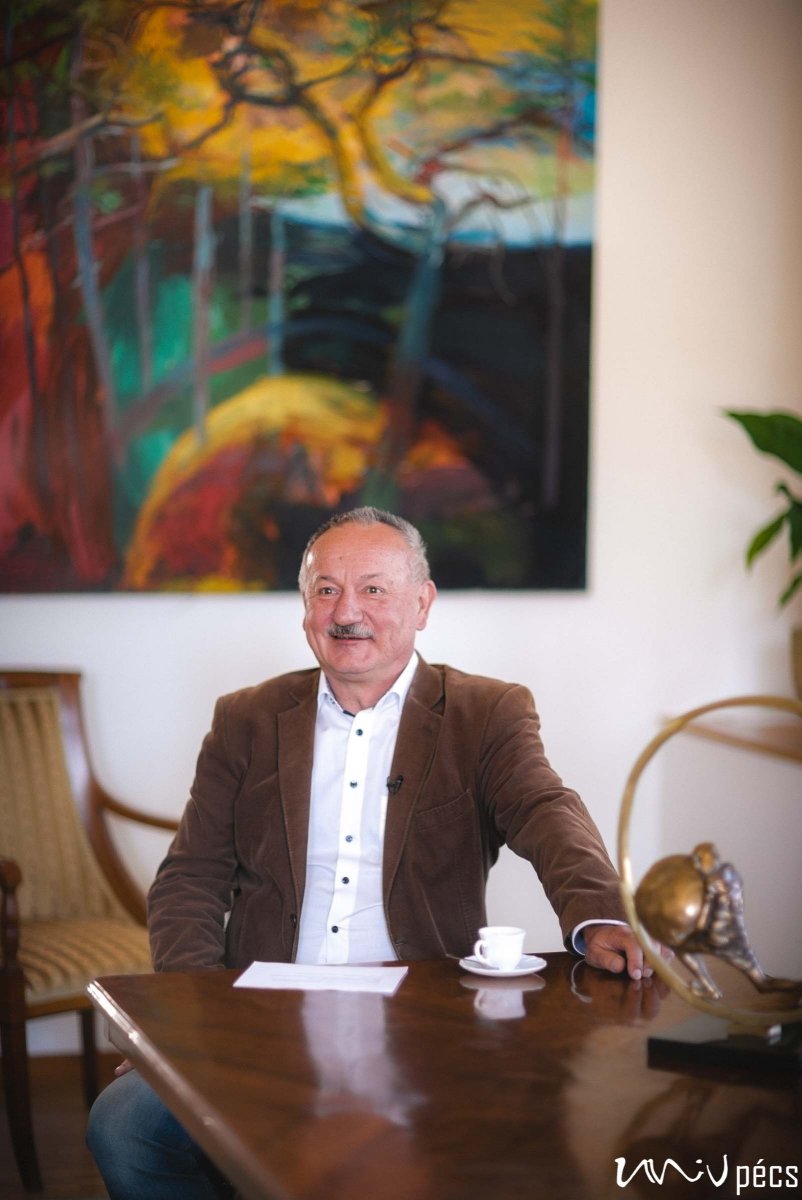
About the virology research: how realistic is it to possibly stop the spread of the disease in Hungary from Pécs?
It is absolutely realistic, because we have esteemed colleagues like Ferenc Jakab, Gábor Rauter and their colleagues, including Katalin Gombos, who are among the best in the country as well as internationally and have a tremendous knowledge base like very few in Hungary. Since their relationship with the other university colleagues is excellent, I think that this team has the potential, to cover the most important fields of the research successfully.
The transition to digital education at the University of Pécs has been quite smooth despite its unexpected rapidity. What do you think, how will this influence the future, do you think that we might continue certain forms of digital education?
It is certain, that this means a serious step forward. From this point of view, we can compare the pandemic situation to a war: in these cases, financial funds and human resources are focused on the support of those fields, that are absolutely necessary to resolve the situation. If you think about it, what kind of airplanes were used at the beginning compared to those used at the end of the second World War, we have to realize that they developed a lot, it has been a great step forward, and however strange it may sound, the positive results of this technological development have stayed with us even in peaceful times. Similarly, the application of digital technological solutions during the pandemic is a priority, which will in my opinion positively shape our future in ways that we do not yet realize.
Considering the dual educational programmes, the situation is not that positive, many companies cannot work with the students, since they are struggling to stay in business. The realization of practical education may also raise some questions.
The large-scale development of simulation techniques parallel to the digital technologies has been taking place. In spite of this, nothing can replace real practice, neither in the case of medical students, other parts of healthcare education, nor in the case of engineers, or even art students. From this point of view, the situation is less than optimal, however, we are implementing measures to solve the situation, of course with the help and guidance of the state secretariat for higher education, and we will provide practice options when the emergency situation is over.
Considering the home office in the case of non-teaching staff I heard two gossips. One is that the Hungarian economy will suffer because of the emergency situation, that a reduction of salaries or layoffs can be expected because of the restrictions in the public sector. The other more cynical remark is tht now it becomes clearly visible who has been in “home office” for most of the time. What is your opinion about these?
I hereby would like to let the staff of the university know that now we can definitely feel, how much better off we are than those entrepreneurs, who work on the free market. Indeed, it seems that not only internationally, but nationally significant layoffs might be expected. At the university, I always put the emphasis on the proper performance of the colleagues, and aim to establish a performance tracking system, which compared to the ones before gives more value to a higher and extraordinary performance, and indicates negative performance as well. We cannot continue to let colleagues stay, who, especially in the hour of need, vanish from the scene. By that I do not mean the active home office performance, but the case, when neither here, nor there can we see a colleague to perform their task. This is not a new thought at the university, and this is not the first case, when we discuss how a performance evaluation system could be introduced. Nevertheless, I repeat: the colleagues of the University of Pécs are safer, than the employees of companies on the free market.
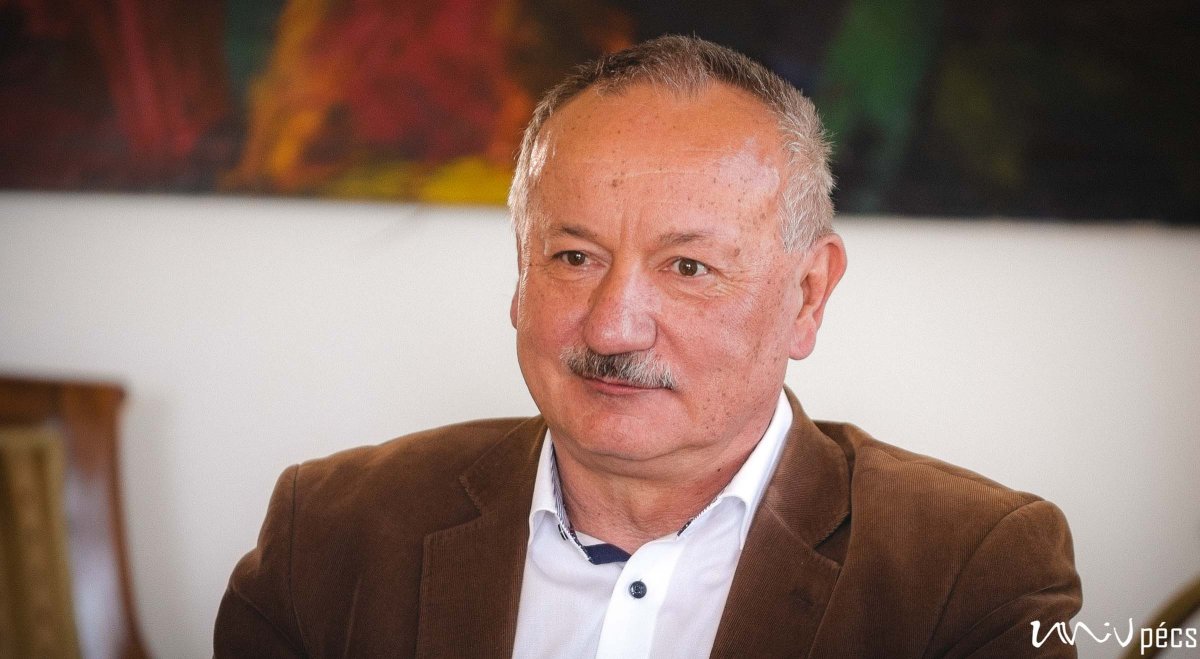
How much will the state of emergency influence the investments of the Modern Cities Programme?
We have already received indications, that the pandemic has further amplified the problems with labour supply, thereby slowing the process. Because of this, certain constructions have to be rescheduled and it will become necessary to modify some of the deadlines. We do not see clearly, how this will influence the prices, because on the one hand, we can expect cheaper prices of the construction materials because of the economic slowdown, on the other hand it is not clear, how the wider workforce background, and the bigger constructions will be done because of the economic situation. We hope that the regression after the pandemic will be fast, since this situation is different from last recession, because it has a completely different reason. One thing is certain however: we have to prepare now, what we are going to do when the pandemic is over. In this sense, the restart of the economy is of the utmost importance to all of us!
How much will the pandemic influence the plans concerning this year’s budget?
We have discussed this at length with the chancellor. It is obvious of course, that the pandemic situation has already brought numerous additional expenses. How, when and on what schedule the university will be compensated for these, will also depend on the coming weeks and months. I think that state-run institutions always aim to break even, and this year, we will be able to achieve that.
What do you think will be the long-term results of this pandemic?
We already mentioned one aspect of this concerning the digitalized education. Now it has become clear, that it poses a certain risk, if our supply depends largely on far away countries, so the trend to source goods and food locally will continue, thereby supporting the regional, national smallholders. We might also respect each other’s boundaries more, including paying more attention to general rules of hygiene. These are definitely positive results.
I think we will also be more prepared in the sense that we will be able to react relatively faster, in terms of immunization, potentially effective medication, or simply that in the case of an emergency the disturbance caused by the initial measures will be less serious than this time.
However, I hope that there will not be a similar situation within a century.
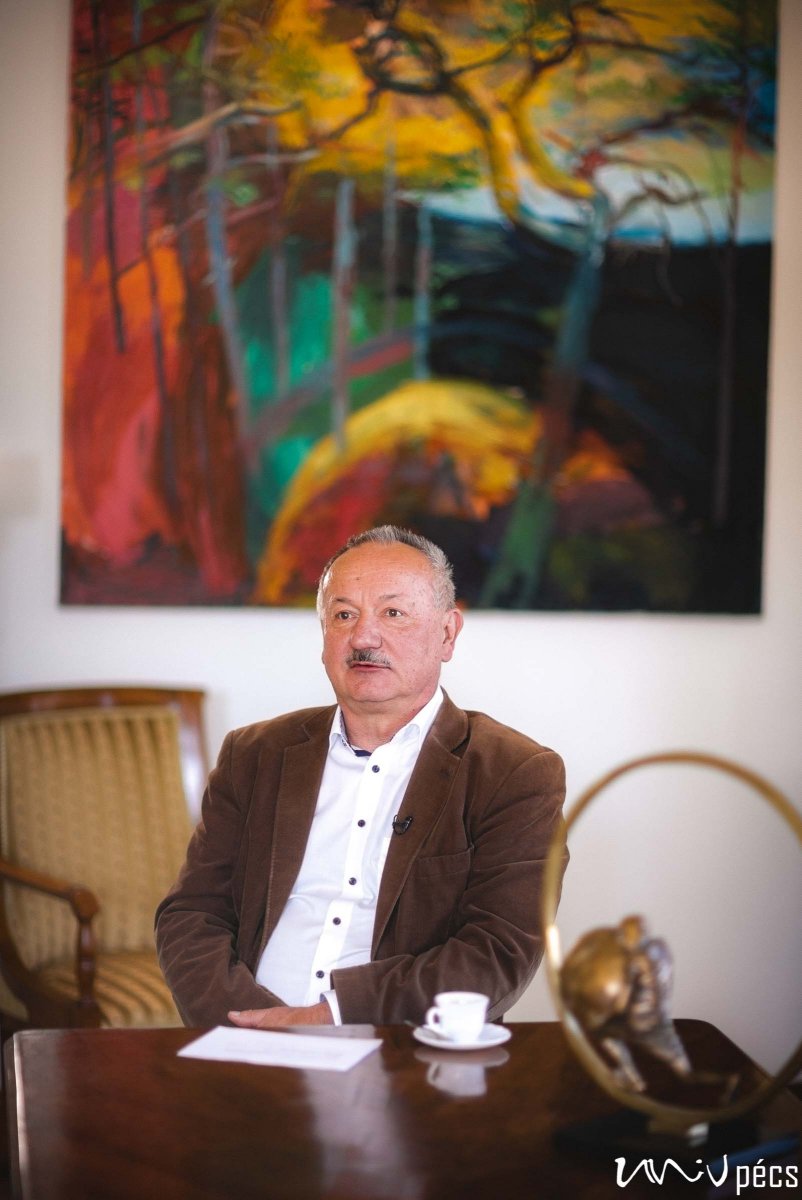
Would you say something to those, who are going to have their maturity exams, or have to defend their thesis soon? The usual celebrations with a crowd will not be held, so they might have to celebrate these turning points of their lives at a later date or not at all.
This is regrettable on the one hand, on the other hand there will be a strong imprinting, since they will be able to tell “I passed my maturity exam/ defended my thesis, when…”.
At the same time, I strongly suggest everyone to do their best. Talent is obviously extremely important in all disciplines, however, based on many years of experience, I have to tell you, that nothing can replace hard work. I have often seen people waste their talent, while the hard workers with possibly less talent succeeded. Therefore, I think that it is commendable to study and work hard, consistently, properly, setting high standards.
by: Éva Harka, UnivPécs
Read the original article in Hungarian »
Coronavirus information regarding the university: https://pte.hu/en/covid/news
- Log in to post comments
University of Pécs | Chancellery | IT Directorate | Portal group - 2020.

